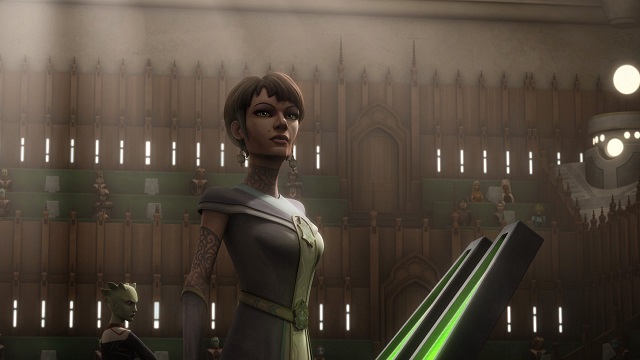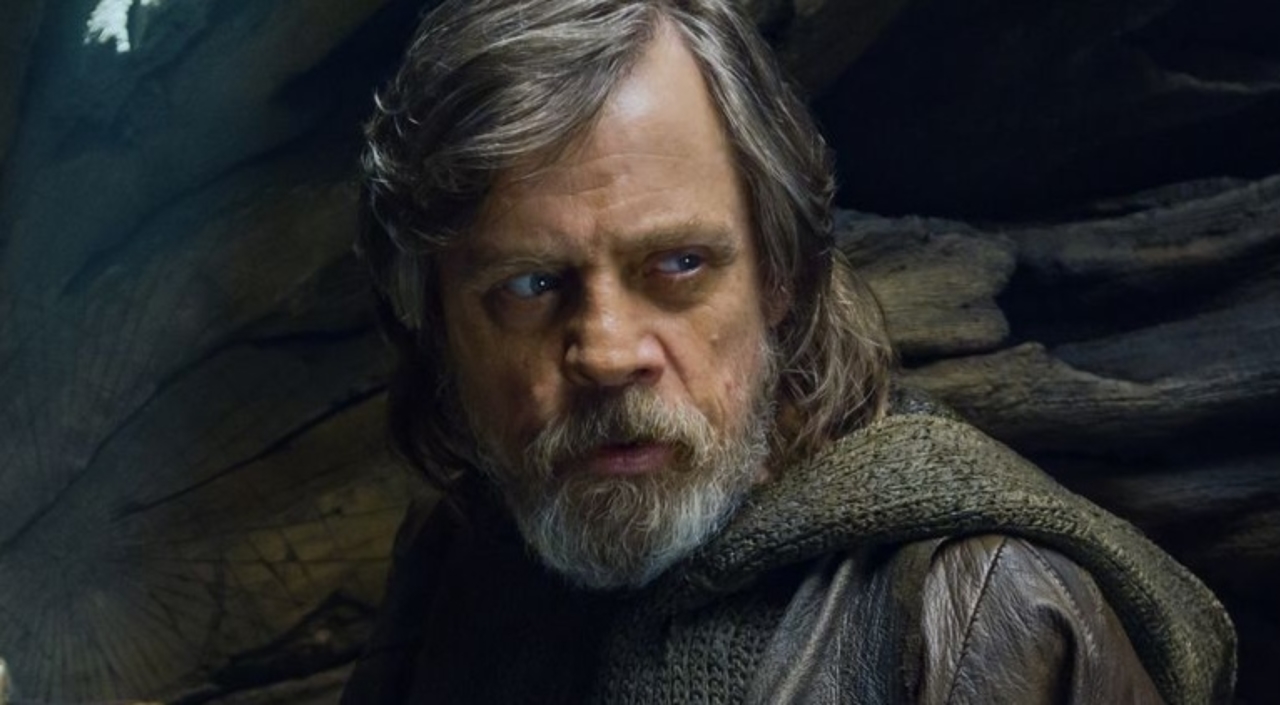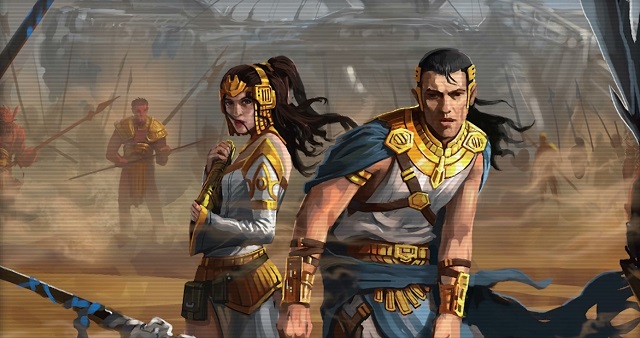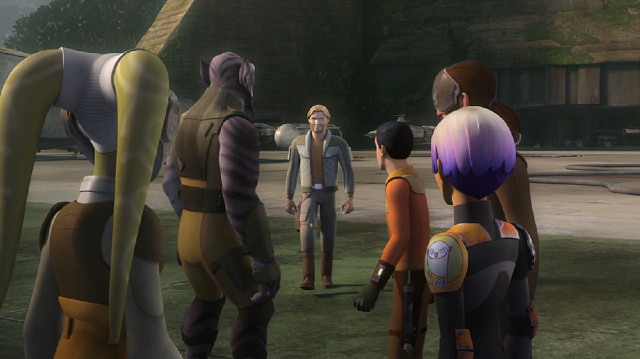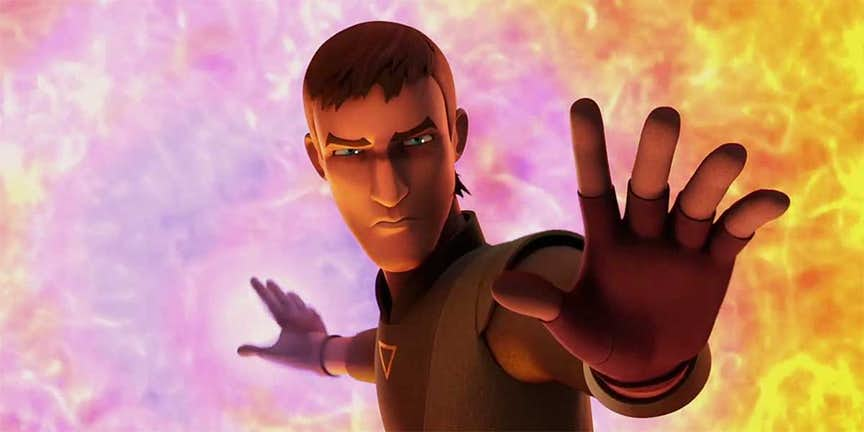
Mike: Well, you can debate whether or not this was inevitable—lord knows we have—but you can’t debate that it’s happened: Kanan Jarrus is no more. [1]Okay, this is Dave Filoni and it’s possible he’s a wolf now, but that’s beside the point. There are two angles, I think, from which to discuss this development—did it really need to happen, and did they handle it well? I reject the notion that it was absolutely necessary from any sort of continuity standpoint, but I do think in the context of this story it’s dramatically justified. And since fans have been perfectly happy to spend the last few years debating whether Kanan should die, I’d rather not rehash that again here, and instead focus on how he died, and whether Star Wars Rebels managed to earn this moment that, arguably, they knew all along was going to happen.
Just in terms of the artistry involved, the score, the pacing, the characters’ reactions, I thought it was beautifully and naturalistically done rather than some kind of idiot-ball situation where the plot gods reached down and smooshed him because they wanted to (though okay, I could argue that his eyes randomly healing for two seconds was a smidge over the top). But while I never didn’t like it, the more I think about it the more I appreciate how it seems to fit into not just Rebels‘ larger narrative but the overall Star Wars story at this point in time.
In the heat of the moment, and with a couple months off between this episode and “Rebel Assault”, it’s easy to forget how important the TIE Defender factory has been to the last couple seasons, and underestimate how big a deal it is for Pryce to effectively destroy it just to take Kanan down. Both “Jedi Night” and “DUME” even take the extra step of establishing a competition for resources between Thrawn’s Defenders and Krennic’s Death Star project, meaning that the films could have gone very differently with that factory operational and Thrawn coming out on top. And speaking of Thrawn, it sure looks like his and Pryce’s happy working relationship has come to an end—once again, he’s undone not by his own failure but by the rash decision of an underling. Whether Thrawn or Pryce emerge from this mess intact remains to be seen, but unless Rebels gets too wrapped up in Mortis shenanigans to give this plotline a satisfying payoff, I suspect Kanan’s messy demise will prove to be one of the most important events the show has portrayed—and thus, I’d call it very much earned. Read More
| ↑1 | Okay, this is Dave Filoni and it’s possible he’s a wolf now, but that’s beside the point. |
|---|
